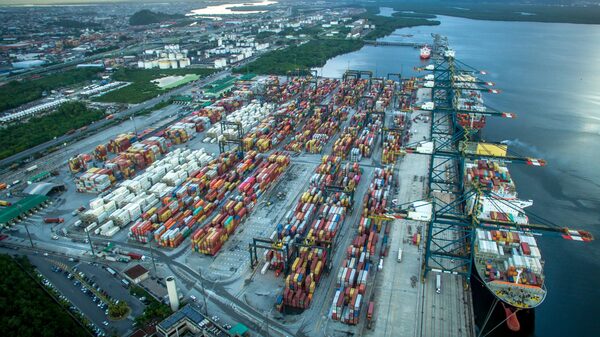Bloomberg — A massive consolidation of mom-and-pop shops selling farm chemicals is underway in Brazil, a move that has the potential to smooth out a turbulent part of the food supply chain.
Big agribusinesses like Nutrien and Syngenta are stepping in to buy up parts of the fractured sector made up of thousands of small retail shops that sell everything from weedkiller to fertilizers directly to Brazilian farmers. For the first time, these behemoths will have control over the full journey of such products from port to farm.
In Brazil, markets for the crop-boosting chemicals are closely watched because growers there are the No. 1 producers of many commodities including soybeans and sugar, and they rely heavily on imports to boost output. Any volatility in farm chemicals could ultimately mean less coffee or less cooking oil in other parts of the world.
Read more on Brazil and fertilizers:
The consolidation could ultimately make it easier for farmers to get the critical chemicals, with bigger players offering streamlined websites that can do everything from rapidly provide quotes and schedule deliveries. The acquisition spree comes as worries about disruptions to fertilizer supplies due to the Ukraine war sent prices for fertilizer to records earlier this year.
The trend has some strong tailwinds that will keep it going: There’s plenty of money to be made in snapping up these minor outfits. Farmers are expanding acres and hauling in record profits from high crop prices, so they’re not skimping on the chemicals that will ensure bigger production.
“There’s fierce competition,” said João Paulo Kriigner Zampieri, founder and partner of ZMP consulting. “Big companies and private equity funds will keep fighting over the next few months for more space, and we’ll keep seeing more acquisitions, showing how big the appetite for this market is.”
Multinationals
Fertilizer multinationals, private equity firms and trading companies have acquired more than 50 local dealers of chemicals worth over $1 billion over the last four years, which is unprecedented. The numbers are likely higher, but not all deals are publicly announced.
Altogether, dealerships owned by private equity or multinational companies should see more than 40 billion reais ($7.556 billion) in sales in 2022 in 700 retail stores, according to a study made by Brazil-based ZMP Consulting. The buyers include Canada’s Nutrien Ltd., Syngenta, Lavoro, Acqua Capital and AgroGalaxy.
Among the latest deals is Nutrien’s bid for Casa do Adubo for over $200 million. Lavoro, the biggest player, just announced a SPAC and more money for acquisitions. Nutrien acquired over 39 retail locations and 10 distribution centers in 11 states and expects additional sales of $400 million, bumping annual revenues in South America to $2.2 billion.
Nutrien will continue to expand via acquisitions, the company said by email. Yara, a Norwegian fertilizer company, said it’s hunting for “growth opportunities” in an email.
To be sure, the market could start to cool if negotiations get harder due to attractive margins, according to agriculture consultant Diogo Mazotini.
“Until a few months ago we saw corporations buying other big companies, and now we see the acquisition profile changing, with more medium targets,” he said.
Motivated to buy
Still, bigger companies are motivated to buy. The more stores they can scoop up, the more volumes they can move, which means better profits on what are often thin margins.
So far, Brazil’s antitrust authority, the Administrative Council for Economic Defense or CADE, isn’t worried about market concentration, given that thousands of small shops are still spread throughout the country. A CADE analysis of the market showed that Nutrien, even after the purchase of Casa do Adubo, had less than 20% of the market.
Read more on Bloomberg.com




